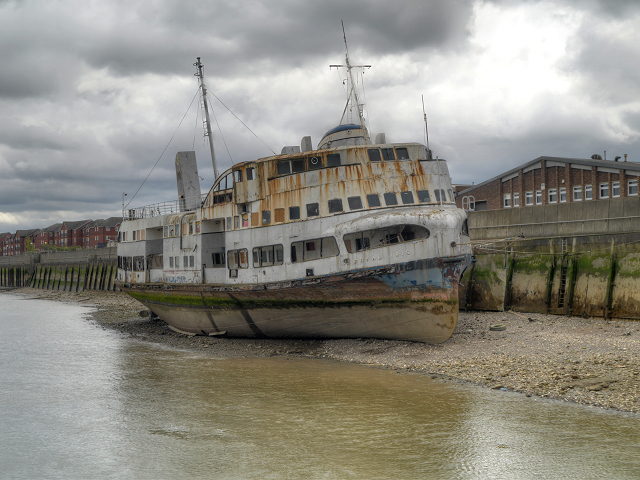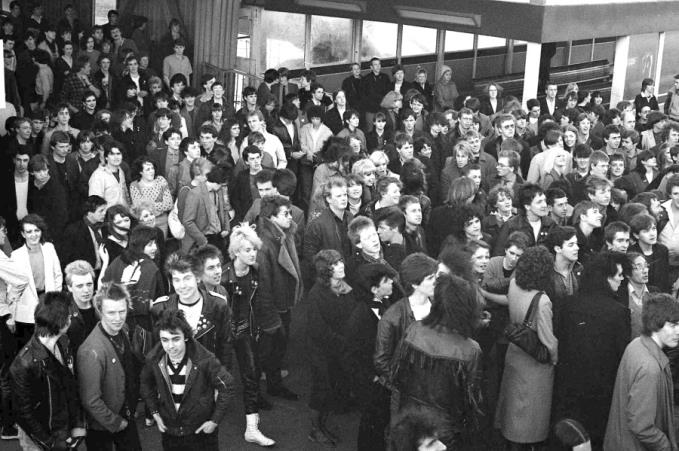The biggest ever shake-up in Mersey Ferries history was announced today.
It will see the likely closure of Birkenhead’s Woodside Ferry terminal a brand new Royal Iris and Royal Daffodil and a reduction in the early morning commuter service.
Bosses at Merseytravel say the 20-year vision will secure the future of the cross-river service for generations to come.
At the heart of the strategy is the stark reality that for decades use of the ferry service has been in sharp decline.
This year 120,000 commuters used the morning ferry link – an average of just 200 to 240 passengers a day, resulting in every passenger essentially being subsidised to the tune of £4.60 per trip, they say.
A further 500,000 went on the river cruises or Manchester Ship Canal cruise.
It is in sharp contrast to 1950 when almost 30 million passengers sailed across the Mersey.
Merseytravel say leisure cruises, not commuter traffic, will be the saviour of the ferries.
From the vaults: Missing the boat: Indignant end for the Royal Iris
Two new ferries, one launched around 2020 the other in 2030 – to be called Royal Iris of the Mersey and Royal Daffodil – will be designed specifically for leisure cruises. Each will cost between £6m and £10m but over the years, say management, will save millions it costs to maintain the aging fleet, average age 60 years.
One of the existing ferries will be moored in the Manchester Ship Canal, at Eastham, to concentrate almost exclusively on cruises.
 Watery grave on the Thames for the famous Royal Iris
Watery grave on the Thames for the famous Royal IrisOne of the toughest decisions will be over the fate of the two ferry terminals at Seacombe and Woodside. Both need at least £5m spent on maintenance work. It seems likely that Woodside will close, as Merseytravel says it does not have the funding to repair both. Seacombe is likely to survive as it does not have a nearby rail alternative: Woodside is close to Hamilton Square station.
The morning ferry commute service is also likely to start at 8am to avoid the high expensive of keeping a ferry in the river overnight.
The changes will also see the river cruises increased to every 30 minutes, instead of hourly during the summer months and in school holidays.
The ferries have faced total closure in the past, saved only from the breaker’s yard by nostalgia.
Consultants have been used to help compile the vision for the future which will be put to the Merseytravel committee on January 7.
It is major river events, such as the three Queens, and the final visit of the QEII, which see the ferries in hot demand, but the year round service has to find ways of saving money.
Even with the suggested changes, the need for public subsidy is likely to continue.
Merseytravel’s head of customer delivery, Gary Evans, said: “Use of the ferries has been steadily declining since their heyday because of other methods of crossing the river.
"Even so the ferry service remains the most popular paid for attraction in the Liverpool area.
“What we have proposed will be introduced gradually so there will be no sudden changes. It is clear there is a growing demand from the leisure sector for ferry cruises, and we want to build on that.”
This year the Mersey Ferries won the prestigious Operator of the Year award at the National Transport Awards, recognising the value of the famous ferries to the economy.
Ferrying since Liverpool's earliest moments
 Punks wait to board the Royal Iris for a gig in the 1970s. Picture: Francesco Melina
Punks wait to board the Royal Iris for a gig in the 1970s. Picture: Francesco MelinaFor more than 800 years ferries have transported people across the Mersey, making it one of the world’s oldest ferry services.
The ferries have starred in a full length film, ‘Ferry Cross the Mersey’, two of the boats were rewarded by royalty for a key role they played during World War One, and they have hosted concerts by all sorts of famous bands including the Beatles in 1964.
It was during WWI the Daffodil and Iris took part in a naval raid on Zeebrugge in Belgium, chosen for active service because their shallow drafts allowed them to dodge explosive mines. Both ferries were damaged by enemy action, but returned to Liverpool to be given a heroic welcome. They were mentioned in dispatches for their valiant contribution and King George V granted them the right to use the regal prefix, becoming Royal Iris of the Mersey and Royal Daffodil.
It was in 1150 when monks from a priory on the river bank opposite Liverpool started a ferry service, charging a small fare to row passengers across the Mersey. Eight centuries later the service they started survives, with the addition of a Tannoy and Gerry Marsden's famous tune.










